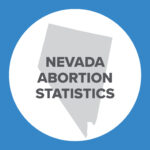Fact of Life: American Cars (and Their Drivers) Exhibit Decidedly More Pro-life than Pro-choice Views
This is Issue 99 of the On Point Series. This is an updated version of On Point Issue 32.
If you have spent any time on American roads in the past decade, you have likely noticed cars with pro-life license plates sharing the road with you. Pro-life license plates are currently available in the District of Columbia and 34 states. The Children’s First Foundation also makes a pro-life “half-plate” available for five additional states, which can be attached to the top or bottom of a standard DMV-issued plate. Pro-life license plates come in various styles, the most common of which is a yellow plate with a cartoon of a boy and girl and the words “Choose Life.” After the State subtracts an administrative fee, the proceeds of pro-life license plate sales are distributed, sometimes through an intermediary, to pro-life pregnancy help centers or organizations offering adoption services.
Curiously, there is a notable absence of “pro-choice” license plates on the road. Only four states currently offer a pro-choice plate option: Alaska, Nebraska, Pennsylvania, and Virginia. In Alaska, the funds received from pro-choice plates go to the Alaska Children’s Trust, a state savings account that issues grants to programs aimed at preventing child abuse. In the three remaining states, monies from pro-choice plates fund or advertise a local or regional Planned Parenthood. Each of these states offer both a pro-life and pro-choice plate.
There is no adequate study as to why American drivers have so predominantly chosen pro-life plates over pro-choice plates. Sometimes the state legislature rejects a pro-choice plate bill. Other times, pro-choice activists in the state are unable to reach the required number of pre-sales for the state motor vehicle agency to create and offer the plate. Even states hostile to pregnancy centers appear to have difficulty producing a pro-choice plate option. In states that have both options, pro-life plates greatly out-sell their pro-abortion counterparts.
Case Studies
Alaska
In FY2012, Alaska passed legislation establishing both a pro-life license plate (“Choose Life”) and a pro-choice license plate (“Pro-Family, Pro-Choice”). As of FY2013, Choose Life plates have outsold the pro-choice plate by 38, with Choose Life plates having sold 46, and the pro-choice option only selling 8 plates. That same year, Alaska’s Choose Life plate was the fifth highest specialty license plate sold, under the “Veterans commemorative” plates.[i]
California
In California, where the extreme pro-abortion legislature recently violated the constitutional rights of pro-life pregnancy centers by requiring them to refer clients for abortion, a 2017 Senate Bill authorizing a “California Trusts Women” plate died in an Assembly committee.[ii]
Hawaii
Planned Parenthood of Hawaii has tried for years to obtain the required pre-sale of 150 plates. In 2003, the League of Women Voters in Hawaii reported that Planned Parenthood was only able to secure around 20 pre-sale orders.[iii]
Massachusetts
Drivers in Massachusetts have been able to order a Choose Life plate since the Summer of 2010. Nonetheless, pro-choice plates remain unavailable, despite extensive efforts of pro-abortion advocates to collect the required 3,000 signatures and 3,000 license plate presales.[iv]
Montana
Planned Parenthood of Montana was unable to sell the minimum of 400 license plates[v] to maintain its specialty plate and became one of 85 licenses plates to be revoked in 2020.[vi] Meanwhile, the pro-life plate in Montana, which benefits Options Clinic in Helena continues to accept sales [vii].
Virginia
Four states have both a pro-life and a pro-choice plate option: Alaska, Virginia, Pennsylvania, and Nebraska. The Virginia DMV reports that Virginia Choose Life plates are decidedly more popular than the “Trust Women, Respect Choice” license plates. In fact, in as of the end of July 2022, the Virginia DMV issued almost 2,000 more of “Choose Life” plates (5,210) than pro-choice plates (3,221)[viii], generating more than 2.5 times the income for pro-life pregnancy help centers ($86,065) than Planned Parenthood ($34,050).[ix] For the years that both the Choose Life plate and the pro-choice alternative were in place (2012-2023), the Virginia DMV reported total sales of “Choose Life” ($982,770) to be 2.3 times the total sales of “Trust Women, Respect Choice” ($423,121).[x]
Lawsuits
Throughout the years, pro-abortion groups have sought to enjoin pro-life license plates within the courts. Until the United States Supreme Court weighed in, Circuit Courts of Appeals remained “split,” or divided on key issues essential to determine the constitutionality state’s issuing pro-life license plates where similar pro-choice plates are not offered.
Critical to the decisions of the courts is determining whether the license plates constituted government speech or private speech. Generally, the government may speak for itself. “[The government] is entitled to say what it wishes[,]…[and] may take legitimate and appropriate steps to ensure that its message is neither garbled nor distorted.”[xi] Accordingly, where license plates are determined to be government speech, the plates will generally be upheld as constitutional. On the other hand, if a license plate constitutes private speech, “government regulation may not favor one speaker over another,”[xii] and plates will be generally found unconstitutional viewpoint discrimination in violation of the First Amendment.
In 2002, the United States District Court for the District of South Carolina found that license plates constituted private speech in Planned Parenthood Of S.C. Inc. v. Rose,[xiii] and ruled that a statute authorizing a specific offering for Choose Life plates was unconstitutional, and that pro-life organizations can get an organizational license plate instead.[xiv]
The decision was appealed to the fourth (4th) Circuit in 2004.[xv] In determining whether license plates constituted private or government speech, the fourth (4th) Circuit utilized a four part test it had developed in a previous license plate case involving a group displaying a Confederate flag in its proposed plate design, Sons of Confederate Veterans, Inc. v. Commissioner of Virginia Department of Motor Vehicles.[xvi] In Rose, the 4th Circuit ruled that the pro-life specialty plates constituted a “mixture of private and government speech.”[xvii] Ultimately, the fourth (4th) Circuit found that by only authorizing a Choose Life License plate, South Carolina violated the First Amendment.[xviii]
In 2014, the fourth (4th) Circuit essentially affirmed this ruling by denying a petition for en banc review.[xix] As discussed below, the United States Supreme Court ultimately weighed in, resulting in validation of specialty license plates in general.
In 2003, the eleventh (11th) Circuit upheld a decision by the United States District Court for the Southern District of Florida to deny plaintiff’s challenge to Florida’s Choose Life plate for lack of standing.[xx]
In 2006, the sixth (6th) Circuit issued an opinion on the constitutionality of Choose Life plates in ACLU of Tennessee. v. Bredesen,[xxi] finding that the Choose Life specialty plates constituted government speech.[xxii] The sixth (6th) Circuit found that the plates did not violate the First Amendment.[xxiii]
In 2008, both the ninth (9th) circuit and the seventh (7th) circuit issued opinions on challenges to pro-life license plates. In Arizona Life Coalition, Inc. v. Stanton[xxiv] the ninth (9th) Circuit ruled that arbitrarily denying Life Coalition’s application for a Choose Life plate violated First Amendment Free Speech. Critical to the Court’s decision was its finding that “Messages conveyed through special organization plates…represent primarily private speech.”[xxv] Conversely, in Choose Life Ill., Inc. v. White[xxvi], the seventh (7th) Circuit found that license plates are government speech, noting that the government can choose what to say and what not to say—it speaks for itself. In so ruling, the seventh (7th) Circuit Court of Appeals upheld Illinois’ denial of Choose Life license plate contending it was not viewpoint discrimination because the state avoids the issue of abortion entirely by prohibiting all abortion-related specialty license plates.[xxvii]
The debate continued in 2009 in Roach, v. Stouffer, 560 F.3d 860 (2009). The eighth (8th) Circuit ruled that the Choose Life license plates constituted private speech, and that Missouri’s denial of Choose Life License plate constituted unconstitutional viewpoint discrimination.[xxviii]
In 2014, the 4th Circuit again addressed the Choose Life license plate issue in ACLU v. Tata.[xxix] In this case, the Court found North Carolina’s Choose Life license plate to be private speech, finding that issuing such plates constituted viewpoint discrimination.[xxx]
Later that same year, the United States Supreme Court (in a 5-4 decision) issued a critical ruling influencing decisions on specialty license plates in general. In Walker v. Texas Div., Sons of Confederate Veterans (SCV),[xxxi] the Sons of Confederate Veterans asked the Texas DMV Board to approve a specialty license plate displaying a Confederate battle flag. The DMV Board rejected the application due to the “public comments [that] had shown that many members of the public found the design offensive…”. The Supreme Court held that Texas Specialty License plates constitute government speech, allowing Texas to reject the designed proposed by SCV.
As a result of the U.S. Supreme Court’s decision in Sons of Confederate Veterans, the U.S. Supreme Court instructed the 4th Circuit to reverse its prior opinion on the North Carolina license plate case (ACLU v. Tada, discussed above). The 4th Circuit did so in Berger v. ACLU of NC (2015).[xxxii]
Presumably, the U.S. Supreme Court’s decision in SCV settled the matter on the constitutionality of Choose Life license plates. Of the seven (7) states that encountered legal challenges to their issuance of Choose Life lawsuits, six (6) currently offer a pro-life license plate option: Arizona, Florida, Missouri, North Carolina, South Carolina, and Tennessee. The remaining state, Illinois, does not offer specialty plates on any abortion-related issue.
The chart below shows which states offer pro-life and/or pro-choice license plates.
Plate Availability in 50 States and the District of Columbia
| State | Choose Life Plate? | “Pro-Choice” Plate? |
| AL | Yes | No |
| AK[xxxiii] | Yes | Yes |
| AZ | Yes | No |
| AR | Yes | No |
| CA | half plate* | No |
| CO | No | No |
| CT | Yes | No |
| DE | Yes | No |
| DC | Yes | No |
| FL | Yes | No |
| GA | Yes | No |
| HI | Yes | No |
| ID | Yes | No |
| IL | No | No |
| IN | Yes | No |
| IA | Yes[xxxiv] | No |
| KS | Yes[xxxv] | No |
| KY | Yes | No |
| LA | Yes | No |
| ME | No | No |
| MD | Yes | No |
| MA | Yes | No |
| MI | No | No |
| MN | No | No |
| MS | Yes | No |
| MO | Yes | No |
| MT | Yes | No |
| NE | Yes | Yes |
| NV | No[xxxvi] | No |
| NH | half plate* | No |
| NJ | Yes | No |
| NM | Yes[xxxvii] | No |
| NY | half plate* | No |
| NC | Yes | No |
| ND | Yes | No |
| OH | Yes | No |
| OK | Yes | No |
| OR | No | No |
| PA | Yes | Yes |
| RI | half plate* | No |
| SC | Yes | No |
| SD | Yes | No |
| TN | Yes | No |
| TX | Yes | No |
| UT | No | No |
| VT | half plate* | No |
| VA | Yes | Yes |
| WA | No | No |
| WI | Yes | No |
| WV | No | No |
| WY | No | No |
*The Children’s First Foundation offers a half plate, which can be attached above or below any standard-issue state DMV plate. CA also has a specific group active in promoting the half-plate option.
[i] Alaska Department of Administration, Department of Motor Vehicles. “Alaska Specialty license plates.” Available at: https://www.akleg.gov/basis/get_documents.asp?session=28&docid=21123 (Accessed 5 Feb. 2024).
[ii] CA SB-309. (2017). See http://leginfo.legislature.ca.gov/faces/billHistoryClient.xhtml?bill_id=201720180SB309 (Accessed 5 Feb. 2024). See also, Bilger, Micaiah. “California Assembly Rejects Pro-Abortion License Plates to Fund Planned Parenthood Abortion Biz” LifeNews.com, 12 Sept. 2017.
[iii] The League of Women Voters of Hawaii, “Ka Leo Hana” Convention Edition 2003. Available at: https://www.lwv-hawaii.com/kaleohana/klh0306-hawaii.htm (Accessed 5 Feb. 2024).
[iv] Prochoiceplates.com, “Introduction.” 23 June 2011. Available at: https://prochoiceplates.com/ (Accessed 1 Feb. 2024).
[v] See “Specialty License Plate Application Instructions.” Montana Department of Justice, Motor Vehicle Division. Available at: https://mvdmt.gov/wp-content/uploads/2023/10/MV118-Specialty-License-Plate-Instructions.pdf (Accessed 5 Feb. 2024).
[vi] Riley, J. “What you need to know: MVD clarifies state of specialty license plates revoked in Montana.” KTVH Helena Montana. 12 Feb. 2020 Available at: https://www.ktvh.com/what-you-need-to-know-mvd-clarifies-state-of-specialty-license-plates-revoked-in-montana (Accessed 5 Feb. 2024).
[vii] See https://mvdmt.gov/portfolio-item/options-clinic-pregnancy-resource-center-of-montana-dba/ (Accessed 5 Feb. 2024).
[viii] Deng, G., “Virginia Drivers Are Buying More Pro-Choice License Plates.” 9 Aug. 2024. Washingtonian. Available at: https://www.washingtonian.com/2022/08/09/virginia-drivers-are-buying-more-pro-choice-license-plates/ (Accessed 6 Feb. 2024).
[ix] Brubaker, Brandy, Virginia DMV, Public Relations and Media Liaison. Personal Interview. 24 April 2018.
[x] Virginia DMV FOIA office, Response to FOIA request of Jeanneane Maxon. 12 Feb. 2024.
[xi] Rosenberger v. Rector & Visitors of the Univ. of Va, 515 U.S. 819 (1995) at 883. Available at: https://www.courtlistener.com/opinion/117967/rosenberger-v-rector-and-visitors-of-univ-of-va/ (Accessed 5 Feb. 2024).
[xii] Id. at 828.
[xiii] 236 F. Supp. 2d 564 (2002).
[xiv] https://law.justia.com/cases/federal/district-courts/FSupp2/236/564/2336669 (Accessed 5 Feb. 2024).
[xv] Planned Parenthood v. Rose , 361 F.3d 786 (4th Cir. 2004).
[xvi] 288 F.3d 610 (4th Cir.2002) Available at: https://www.courtlistener.com/opinion/777478/sons-of-confederate-veterans-incorporated-a-tennessee-corporation-by-its/ (Accessed 5 Feb. 2024).
[xvii] Rose, 361 F.3d at 793.
[xviii] Id. at 798-799.
[xix] Planned Parenthood Of S.C. Inc. v. Rose, 373 F.3d 580, (4th Cir. 2004) https://www.courtlistener.com/opinion/786724/planned-parenthood-of-south-carolina-incorporated-renee-carter-v-b-boykin (Accessed 5 Feb. 2024).
[xx] Women’s Emergency Network v. Bush, 323 F.3d 937 (11th Cir. 2003).
[xxi] 441 F.3d 370 (6th Cir.2006). Available at: https://law.justia.com/cases/federal/district-courts/FSupp2/354/770/2418337/ (Accessed 5 Feb. 2024).
[xxii] Id. at 375.
[xxiii] Id. at 379.
[xxiv] 515 F.3d 956 (2008).
[xxv] https://www.courtlistener.com/opinion/1387260/arizona-life-coalition-inc-v-stanton (Accessed 5 Feb. 2024).
[xxvi] 547 F.3d 853 (7th Cir. 2008).
[xxvii] https://www.courtlistener.com/opinion/1225539/choose-life-illinois-inc-v-white (Accessed 5 Feb. 2024).
[xxviii] https://www.courtlistener.com/opinion/1226973/roach-v-stouffer (Accessed 5 Feb. 2024).
[xxix] 742 F.3d 563 (4th Cir. 2014). Available at: https://casetext.com/case/aclu-v-tata (Accessed 5 Feb. 2024).
[xxx] Id at 576.
[xxxi] 135 S. Ct. 2239, 192 L. Ed. 2d 274, 2015 U.S. LEXIS 4063 (2014). Available at: https://supreme.justia.com/cases/federal/us/576/200/ (Accessed 5 Feb. 2024).
[xxxii] 135 S. Ct. 2886 (June 29, 2015). Available at: https://adflegal-live-drupal-files-delivery.s3.amazonaws.com/public/2022-06/american-civil-liberties-union-of-north-carolina-v-berger—4th-circuit-decision-on-remand-3-10-2016.pdf (Accessed 5 Feb. 2024).
[xxxiii] The Alaska state legislature passed bills establishing both a Choose Life License plate and Pro-Family, Pro-Choice plates, see https://www.akleg.gov/basis/get_documents.asp?session=28&docid=21123 (Accessed 5 Feb. 2024).
[xxxiv] Proceeds in Iowa go to Iowa roadwork.
[xxxv] In April 2018, Kansas Gov. Jeff Colyer signed a bill authorizing a pro-life plate for sale when initial preorders totaling 1,000 are in place. As of June 24, 2020, approximately 46% of the necessary preorders have been placed.
[xxxvi] From July 16, 2018 through December 31, 2019, a “Nevada Values Life” plate was available for Nevada citizens. For the plate to continue, Nevada required a sell of 3,000. Unfortunately, the plate came just sort of this amount, having sold 2,086 plates. Accordingly, the plate has been discontinued, but drivers that purchased the plate can keep their plates active.
[xxxvii] While not a “Choose Life” plate, New Mexico offers a plate promoting adoption, “Adopt a Child.”
Jeanneane Maxon, J.D. is an associate scholar with the Charlotte Lozier Institute


























